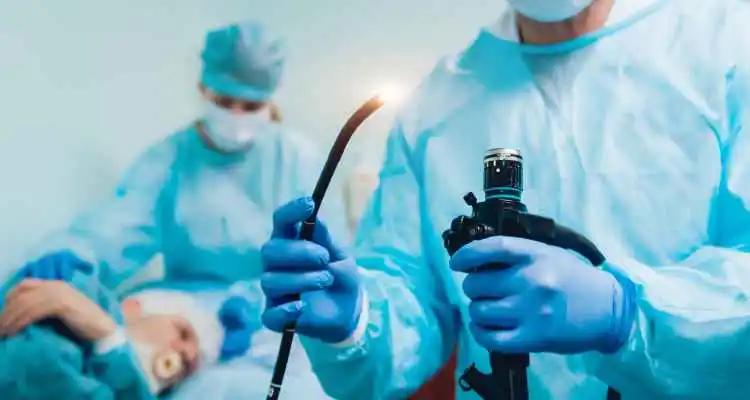It is common to immediately think about seeing a general physician when we are sick or experiencing pains in our body. However, if you have constantly been feeling ill specifically in your abdominal area, then it makes perfect sense to book an appointment with a medical practitioner that specializes in conditions and diseases that affect the gastrointestinal tract. Find out more in this article about when you need to go to a gastroscopy clinic (https://alpinesurgical.sg/).
Get to know your GI tract
The gastrointestinal tract (GI tract) is more than just your stomach and intestines. The GI tract is a part digestive tract and may otherwise be known as the same. This area of the body is made up of several organs that help with swallowing, digesting, absorbing, and waste processing all the food and liquids that we consume. The other parts of the digestive tract include:
- Mouth
- Pharynx (throat)
- Esophagus
- Stomach
- Small intestine
- Large intestine
- Rectum
- Anus
The gastrointestinal tract alone in the abdominal is a large area that can be subdivided into 9 quadrants. The table below shows the organs that are located in these areas:

The diseases and conditions that can affect these areas are numerous. The most common are the following:
- Acid reflux
- Acute appendicitis
- Colitis
- Colon polyps and tumor
- Colorectal cancer
- Crohn’s disease
- Gallstones
- Gastric cancer
- Gastric tumor
- Gastritis
- H. Pylori Infection
- Irritable bowel syndrome
- Hepatitis
- Liver abscess
- Liver cancer
- Liver cirrhosis
- Liver tumor
- Oesophageal cancer
- Pancreatitis
- Pancreatic cancer
- Peptic ulcer
- Rectal polyps and tumor
- Rectal prolapse
- Ulcerative colitis
Alarming signs that tell you to go to a gastroscopy clinic
The conditions and diseases enumerated earlier are not meant to scare you, but they serve as a reminder that there are many things that can go wrong inside the body. Hence, one should always be mindful not to shrug off unusual changes or feelings of discomfort in the body. You should have your health checked when your gastrointestinal problems do not resolve on their own and become persistent.
The most common conditions that may require you to visit a gastroscopy clinic are:
- Gastric cancer
- Gastric/Duodenal Ulcer
- Gastric acid reflux
- Gallstones
- H. Pylori infection
- Oesophageal cancer
Here are alarming signs that warrants a visit to a gastroscopy clinic:
- Bloating, constipation, diarrhea, or gas that is constant or worsens in time
- Changes in your bowel habits that may also be abetted by a change in your eating habits
- Noticeable distention of the abdominal area
- Presence of blood in your stool
- Problems with swallowing
- Severe acid reflux or heartburn that intervenes with your daily activities and sleep at night
- Severe and intolerable pain in any part of the abdomen
- Unexplained and unintentional loss of weight
If any of the symptoms mentioned are accompanied by persistent fever, chills, diarrhea, and/or vomiting, immediately head to the nearest hospital to get emergency treatment.
What to expect during a consultation at a gastroscopy clinic
It is understandable that one may feel lost or overwhelmed when consulting with a doctor for the first time, especially when the signs and symptoms are present on the day of your consultation. To lessen your anxiety, here are what you can expect during your consultation and some tips on how to prepare for it:
- If it is your first time at a gastroscopy clinic, expect that you will be asked to fill out forms for your medical records. Do not forget to bring a valid identification card and details about your medical insurance in case they require it.
- Be ready with a list of your personal and family health history as your doctor will ask about this.
- If you have not kept a record of when your symptoms started, try to track down the date and circumstances when you first felt them and, if the symptoms are intermittent, how often they recur.
- Inform your doctor about the kind and dosage of medications that you are currently taking and the reason why you are taking them. If possible, bring your medications during your consultation for your doctor to see.
- Bring with you any results of imaging, lab, or medical tests that you have recently taken and present it to your doctor. The findings will help your doctor assess your condition better.
- Wear comfortable clothes that can be easily removed in case your doctor proceeds with a physical exam.
During your consultation, your doctor may also perform a physical exam, such as:
- Assessing the abdominal area – Your doctor will check your belly area for symptoms that can indicate abnormal growths or tissue build ups.
- Listening to bowel sounds in each abdominal quadrant – Your doctor will use a stethoscope to listen for sounds in the bowel and make notes regarding how intense and long the sounds last as well as its pitch.
- Palpation of the abdominal area – Your doctor will touch and feel parts of your belly area to check for masses or tenderness.
- Rectal exam – Your doctor will ask to see your rectum and may touch and feel the area to check for signs of bulging, inflammation, and/or any abnormal mass.
What to expect after a GI consultation
After hearing out your health concerns, your doctor may prescribe medications for managing and treating your symptoms or ask you to take an endoscopy procedure. You will be given specific instructions on what to do to prepare for an endoscopy or colonoscopy. Your doctor may also require other medical consultations or tests, such as:
- Barium swallow or enema
- Blood or stool exam
- Colonoscopy
- Cardiac clearance
- CT scan
- MRI
- X-ray
A follow-up consultation is scheduled once the tests are completed and the results are out.

